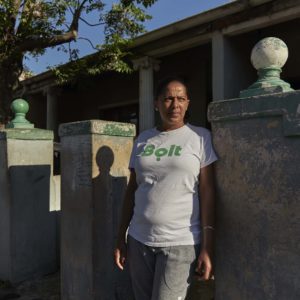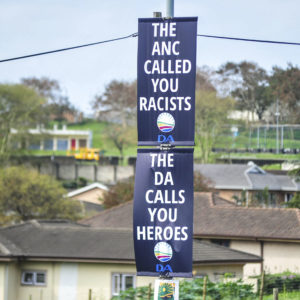Voting in the aftermath of Phoenix violence
Bruised and battered after a murderous July some residents of Phoenix and the surrounding townships mustered a little optimism as they voted but others listed under a pall of depression.
Author:
3 November 2021
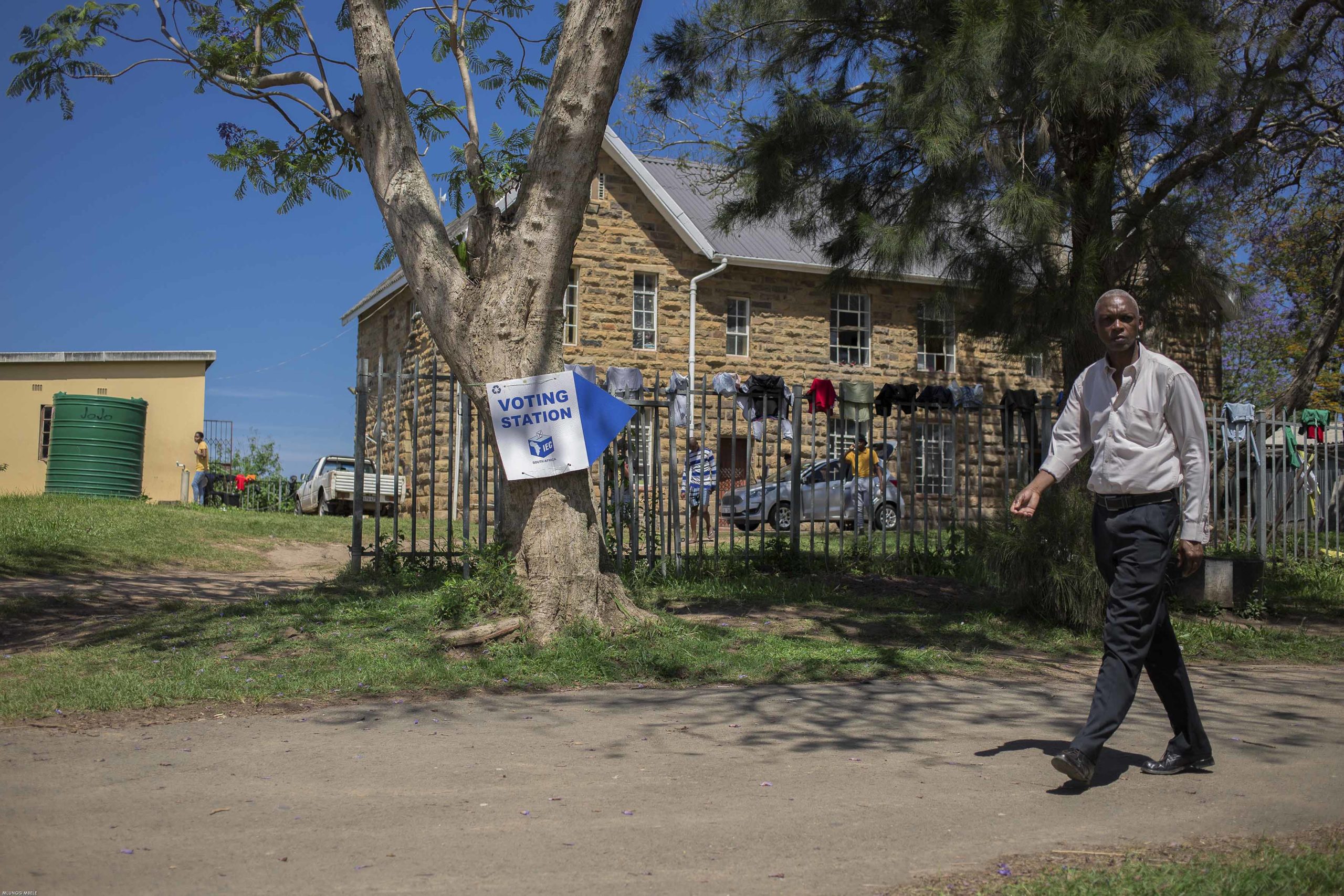
Some Ntuzuma and Phoenix residents were intent on unity during the sixth local government elections since democracy. Casting their votes on 1 November, they said they were committed to peace.
Phoenix resident Clinton Chetty, 40, said that despite the racial tension that fuelled the violence during which 36 people were killed, many from Ntuzuma, Inanda, KwaMashu and Bhambayi townships were united in their desire for social and economic change.
“After the dust has settled, there is now peace and harmony in the area. The acts of vigilantism and racial undertones have subsided, and we are all here to vote for actual change. Everyone here is fed up with the corruption, unemployment and crime that looms over Phoenix. We have shared experiences, and everyone is tired of the same issues. We all want change,” said Chetty.
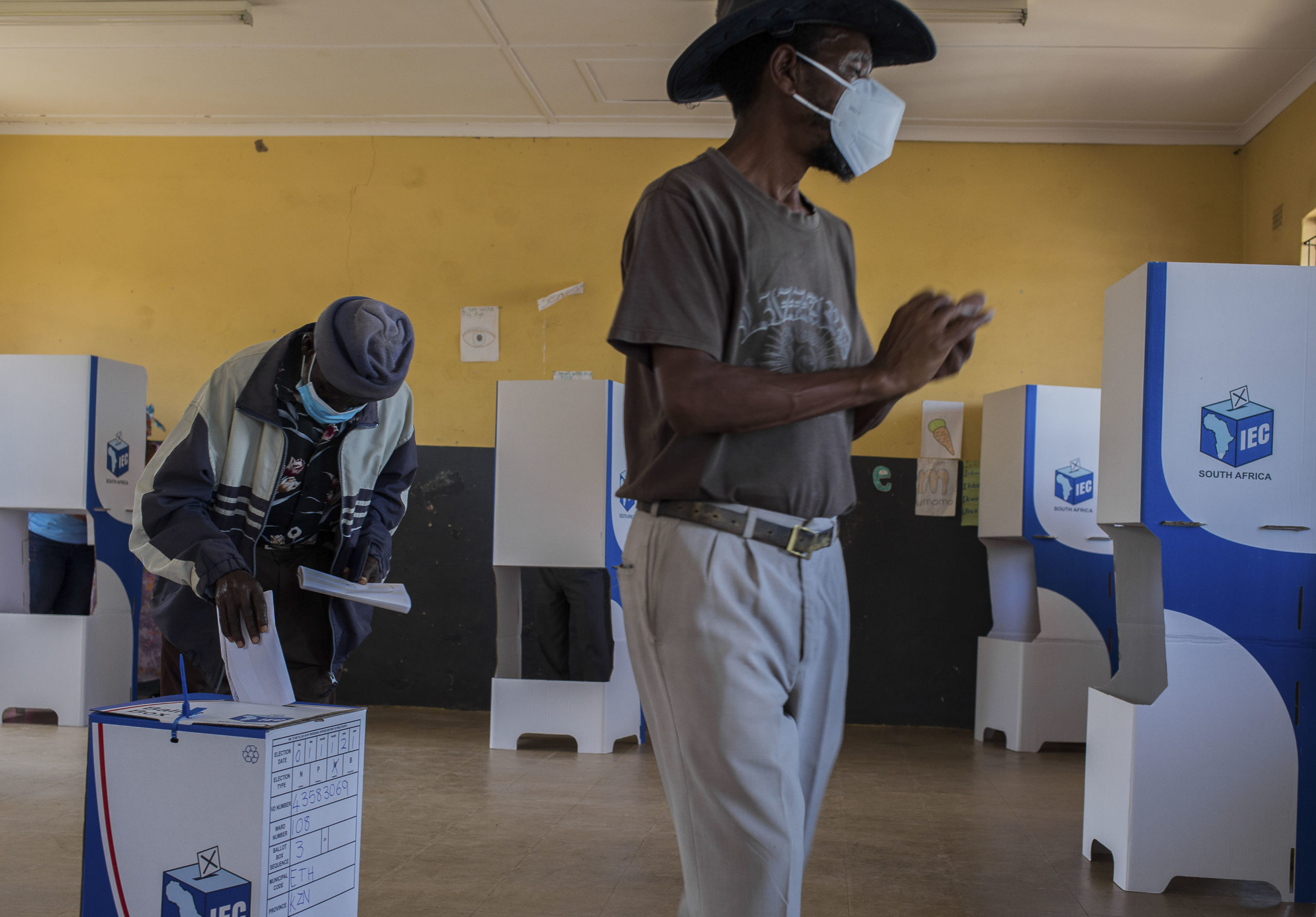
Another Phoenix resident, Trevor Padayachee, 44, said he has seen the communities of Phoenix and the neighbouring townships that were fractured by the violence gradually unite again.
“Community members who condemned the killings from both sides of the communities involved are not necessarily holding hands, but they are now aware of the fact that we all face the same problems. Indians aren’t racist and we also therefore do not support any narratives that continue to paint us in that manner.
“For me, today is monumental because here we are voting together against the same issues … wanting change. All of us have been fed lies by politicians and we have no work and poverty is central. That for me connects us beyond racial lines,” said Padayachee.
The scar of violence
Thokozani Shezi, 38, who cast his vote at Crystal Point Secondary School in Phoenix, said it was simply a “moral obligation” and he has little to no expectation of change. Shezi, who lives in the nearby Mamba Area settlement, said he arrived 15 years ago and there are still only “10 RDP homes”.
“Promises will be promises. We know this, we’ve seen it. We want decent housing, but we can see that hope disappear. I am here today because it’s what I have to do. I see others do and I follow suit. Voting for me has no meaning, no value, no worth.
“I am an active ANC member who was part of the campaigns before today’s elections. We preached the same verse to the people, promising them change, a change that I have never even seen. I still stay in a shack home. I am also unemployed. There’s no hope left in me, but I will never waste my vote because I still want to see a Black government in power. Better the devil you know,” said Shezi.
Shezi described the aftermath of the July violence as a permanent scar. He said that although there is now “peace” in Phoenix, “the memories are still too fresh. The scar seems like it will take some time to heal. I, for one, can never forget how our brothers, sisters and even children were gunned down in this area. It will take some time to heal and regain trust again. For now, we move, we forge the unity and peace for the sake of progress and because we all want change.”
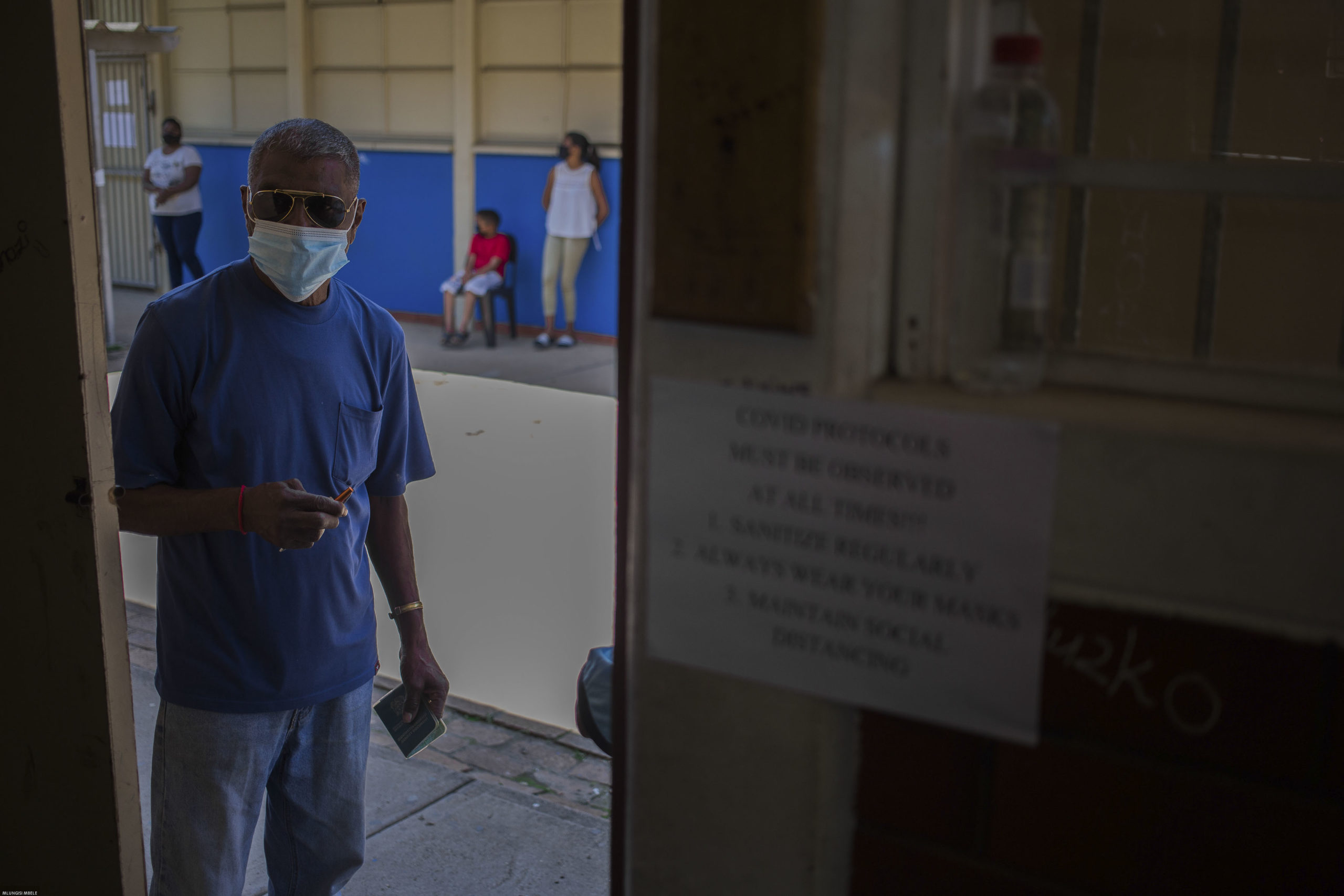
‘For the sake of moving on’
A few kilometres from Phoenix, Ntuzuma Hall in H section was abuzz. The turnout for the municipal elections rose rapidly with each hour. Some voters here said that the many issues highlighted during July’s looting, violence and killings have had permanent implications for residents as hundreds of the already scarce jobs in the area remain at risk.
Zanele Hadebe, 52, is an ANC chairperson for ward 107. She said the ward includes people from Ntuzuma and Inanda and has about 23 000 residents. Hadebe said the lasting impact of the unrest has crippled families, with some losing employment, schooling and trust in the justice system.
Related article:
“There is an obvious direct impact … It exacerbated the social ills of ward 107. We have always had scarcity of jobs, healthcare and schools. Now, it is worse. Some people relied on domestic work from Phoenix, they used shops and schools from there too. Some mothers were scared to take their children back to the schools in Phoenix, and some residents never returned to their jobs because of fear.
“The remnants are still there. Although we have tried to address this fear, we have no leg to stand on because the justice system seems to be in favour of the perpetrators. When people were killed, [Minister of Police] Bheki Cele didn’t come here, instead he went to Phoenix as his first stop. The victim’s families were on their own. Those who lost loved ones or had their cars destroyed will never see any reparations. Yet, we must make peace. We will forge this peace, only for the sake of moving on, but lest we forget,” said Hadebe.
Leaders need to get on board
Thandanani Mabanga, independent ward councillor for Inanda, said that while the community shares concerns of inequality and poverty with their neighbours in Phoenix, breakdowns in the social order within the ward coupled by the housing crisis and a lack of policing halt the community’s prospects.
“We must admit that people, especially the youth, need to be more politically aware,” said Mabanga. “They need to know why it is important to vote. When that happens, they will also help propel the change that we desperately need in this community. As it stands, young people in the area have no clue how being active in the community and understanding its politics can help influence policies that oppress them.
“The devastating effects of the violence have been felt by the working-class citizens, who no longer feel safe to work in Phoenix and no longer trust in the forged relationship that existed between Indians and African people. The sentiment today at the polls here is that despite all that’s happened, people are for change and a better society. We just need more leaders to get on board with the message, and do away with the lies and corruption and instead promote empowerment and service delivery.”
Related article:
Mabanga added that the recent controversial campaign posters from the DA were “insensitive and opportunistic politicking”. In an area desperate for the appeasement of racial tensions, the DA chose division and callousness with its posters, which read “The ANC called you racists” and “The DA calls you heroes”. The DA won five wards in Phoenix.
“I have never seen such an offensive poster, a poster that you know was drafted and approved. They took advantage of the fragile relationship that was threatened further by the killings and used it to gain voters. It might have worked. This was not the first time we had seen the messages of heroism being hailed in Phoenix. During the court proceedings that have since gone quiet, we saw members of Phoenix with placards and signs propagating the same message. That’s when the Release Our Heroes campaign began. The DA used this narrative and rode this wave. They cheered on those who brutally killed innocent Black people, undoing any efforts for peace,” explained Mabanga.
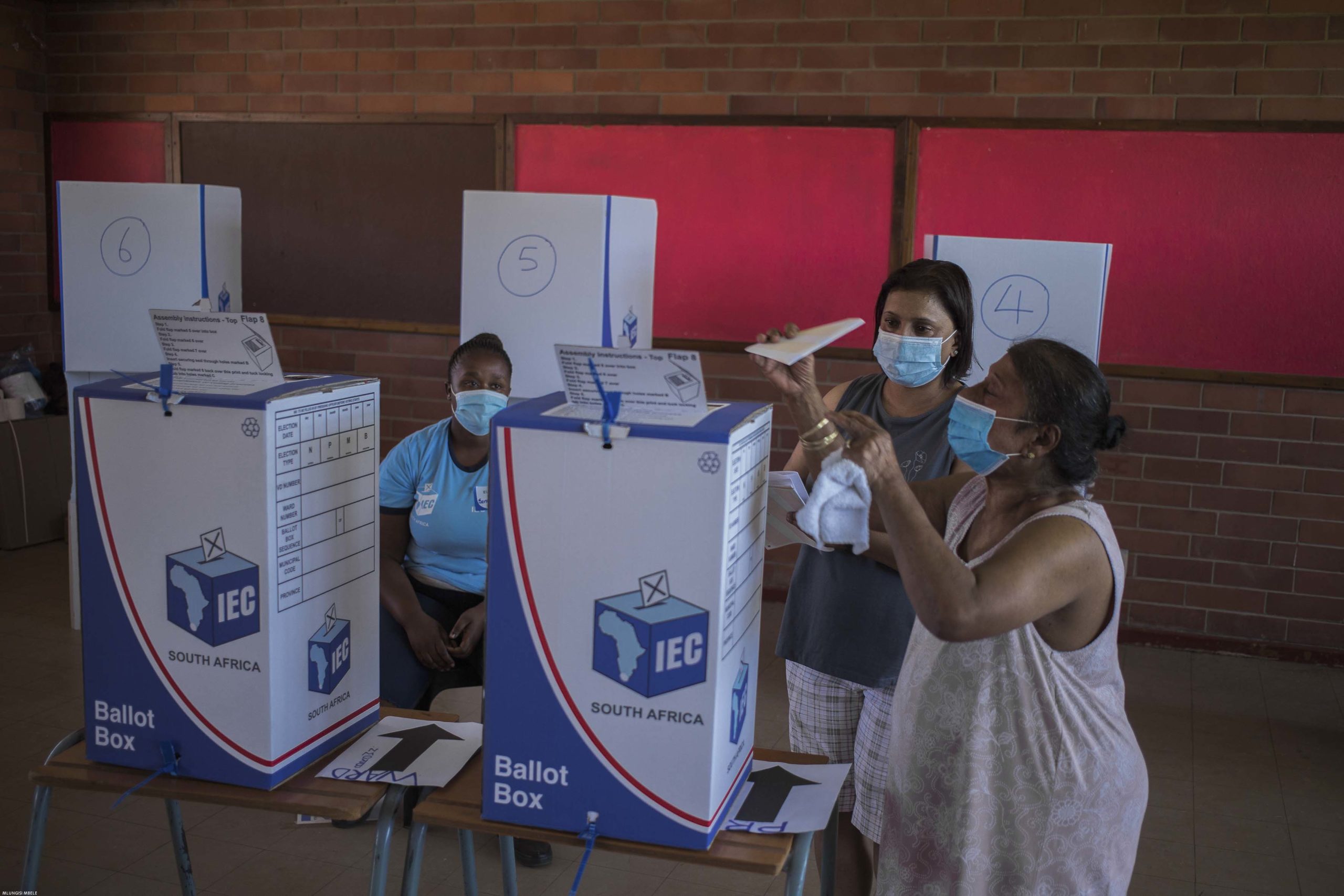
Livelihoods lost
DA leader John Steenhuisen defended the posters publicly before the party took them down and apologised after the storm they caused.
Velenkosini Mkhize, 47, whose car was torched by vigilantes during the riots, said the poster debacle was triggering for his family, who escaped the attack on the night of 12 July. “When I saw the DA posters on the news, it was like salt to an open wound because here was the DA commending and encouraging the violent and racial acts that killed and destroyed Black families,” he said.
Mkhize had been on his way back from fetching one of his sons from work in Umhlanga when they were cornered by an armed mob. The father of four said he has been plunged into financial hardship without his car.
“Losing my car crippled me financially because I work in the construction industry. I had just switched insurance companies for the car and the one I had, had not yet been active. So in the end, I wasn’t even able to get my car back. Some of my workers haven’t received their salaries in three months because I don’t have my car, and that was my only tool of trade. Without it, now things are slow and bleak.”

